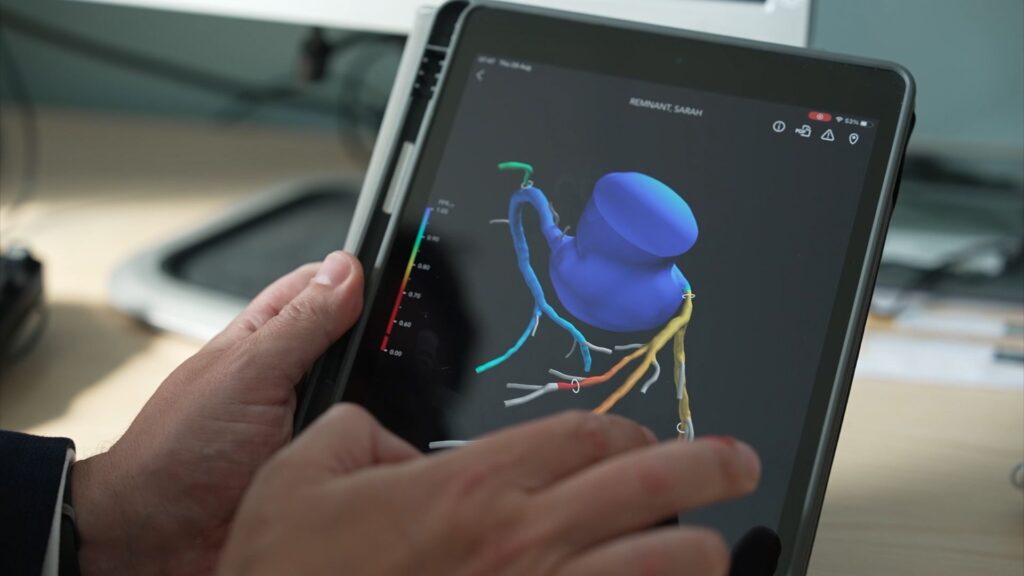Newcastle Hospitals has played a pivotal role in a national study which assessed new technology to improve diagnosis of coronary heart disease (CHD).
The technology, rolled out across 56 NHS hospitals, including at Newcastle Hospitals, enables doctors to speed up diagnosis and treatment of patients with suspected CHD.
CHD affects 2.3 million people in England. It develops when fatty material builds up inside the coronary arteries, restricting the blood flow and oxygen supply to the heart, potentially causing a heart attack.
Suspected CHD is diagnosed using a CT scan. If a blockage in the coronary artery is detected, an invasive angiogram is usually performed. This involves inserting a catheter into a blood vessel and injecting dye so that narrowed or blocked blood vessels can be seen on an X-ray.
The technology, called Heartflow, reduces the need for an invasive angiography by turning a CT scan of the patient’s heart into a personalised 3D image.
The technology assesses the extent and location of blockages, which is interpreted by a cardiologist. The tool also has the ability to suggest the size and position of a stent , if required.

The results of the study, recently published in Nature Medicine, found that the technology reduced the number of patients needing invasive angiogram tests by a sixth (16%) in cases where it was later found no further treatment was required – and by 7% overall.
Consultant radiologist, Dr Anna Beattie, led the national study in Newcastle. In addition, she also initiated a preliminary study in 2018 to investigate the clinical impact of adopting the technology.
Results of the preliminary study demonstrated a reduction in the use of additional investigations, including invasive angiogram.
Since the pilot project was launched in Newcastle in 2018, over 2,300 patients have benefited from the technology.

Dr Beattie said:
We’re proud to have a played a part in this trial which has implications for patients across the country with suspected coronary heart disease.
“CHD is very common and a major cause of death in the UK and some patients will need invasive tests to confirm a diagnosis.
“These results demonstrate how AI technology can reduce the need for these more invasive tests, speed up diagnosis, and free up time in busy clinics.”
Dr Vin Diwakar, national director of transformation at NHS England, said:
“It is fantastic to see that these revolutionary AI-driven 3D heart scans, supported by NHS England, are transforming cardiac care by significantly reducing the need for invasive tests, speeding up diagnoses, conserving NHS resources, and enabling clinicians to advise patients on the best treatment for their condition.”
Lead clinician on the study Dr Timothy Fairbairn, consultant cardiologist at the Liverpool Heart and Chest Hospital and honorary associate professor at the University of Liverpool, said:
“These results show that this technology reduces the need for tests so that patients only undergo necessary treatments, demonstrating how AI technology can both improve care as well as increase efficiency in the NHS.
“The nationwide study, funded by the Medical Research Council, also showed that the huge benefits of this tool can be felt by all patients equally, no matter where they live.”
From 2021, NHS England rolled out the technology through the MedTech Funding Mandate programme, which aims to ensure patients and the NHS benefit from clinically effective and cost saving medical technologies faster and more equitably.
- Results of the study, which was funded by the Medical Research Council, can be found here: Implementation of a national AI technology program on cardiovascular outcomes and the health system | Nature Medicine
- More information on Heartflow Analysis is available on the company’s website Heartflow – Decisive Coronary Care
